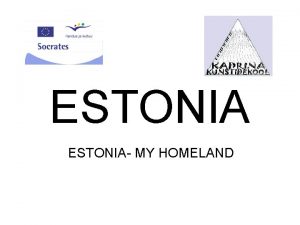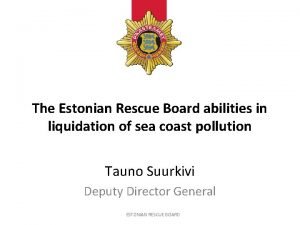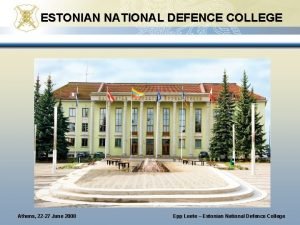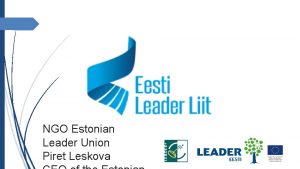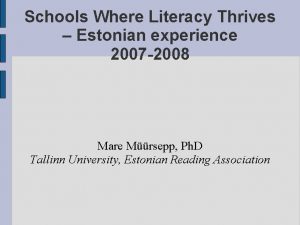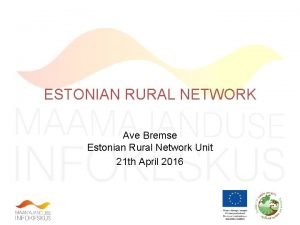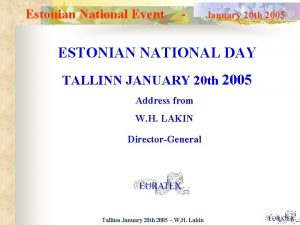Schools Where Literacy Thrives Estonian experience 2007 2008






- Slides: 6

Schools Where Literacy Thrives – Estonian experience 2007 -2008 Mare Müürsepp, Ph. D Tallinn University, Estonian Reading Association

Development of the project in Estonian schools ● ● 2006 elaboration of the directions for the competition Composing of the description of the ideal of school on 3 level: pupil, teacher school as whole

Development of the project in Estonian schools 2007 -2008 ● ● ● 2007 – letters by pupils, overviews by librarians and teachers from 14 schools; 2008 – letters from 34 schools, covering 12 districts Articles in newspaper and in children's magazines Seminars: September 2007, June 2008 Materials on the website of Est. RA www. lugemisyhing. ee

2008 - results ● Centered on the ● ● ● reading in age group 10 -16 Integration of reading activities and subject teaching (history, nature sciences etc) Growth in quantity School routine: reading is a „business“ on librarians and literature teacher Pupils messages – individual mail essay writing organised by the literature teacher collective works

Pupils in age 10 -16: ● ● Reading of books/internet materials, participating in forums about reading What is done in my school to inspire the kids to read? What prevents you from reading, what counteracts? May the reading, search in internet ao reading activities to replace the participating in school lessons?

● ● ● Blogs are interesting too (about youth life), but the book is composed more professionally There are the groups – participating in forums, wishing to participate, not knowing about, not wishing to participate (live conversation is better) In my school – teachers/headmaster/parents introducing their favorites; approving of best readers, presenting of books; pupils' book recommendations for adults; creative activities, romantic events (travels, night-reading) Counteractive: noise, time is overloaded by preparing for the lessons/tests Reading may (partly) replace the going to the school, but there are important factors like live communication and teacher explanation at school



